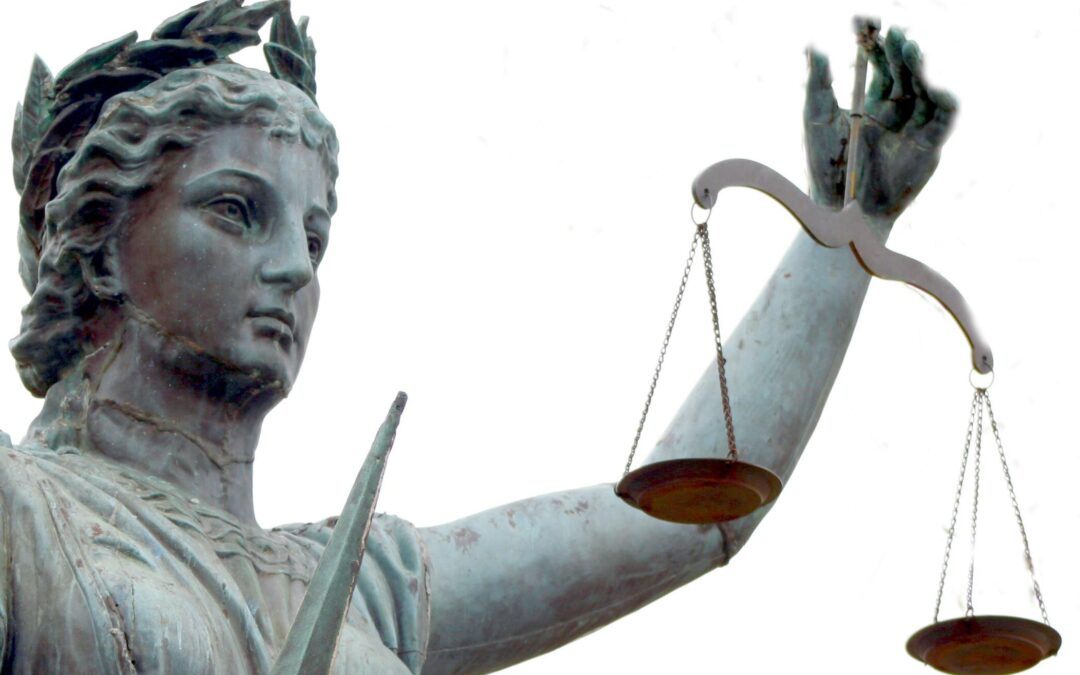
Jun 22, 2017 | News
The ICJ welcomes the adoption today, by consensus, of two UN Human Rights Council resolutions on the independence of judges & lawyers.
The Human Rights Council adopted the biannual resolution on independence of judges and lawyers, including a number of new elements on the theme of independence of lawyers and the legal profession. In particular, the resolution highlights the ongoing threats against and interference with the independence of lawyers and the ability of lawyers to fulfil their professional functions, including in relation to human rights.
The resolution reaffirms and builds on the UN Basic Principles on the Role of Lawyers.
The Human Rights Council also unanimously renewed the mandate of the Special Rapporteur on Independence of Judges and Lawyers for a further period of three years.
The unofficial text of the two resolutions are available in PDF format below:
Official versions will eventually appear on the UN website, at this location.
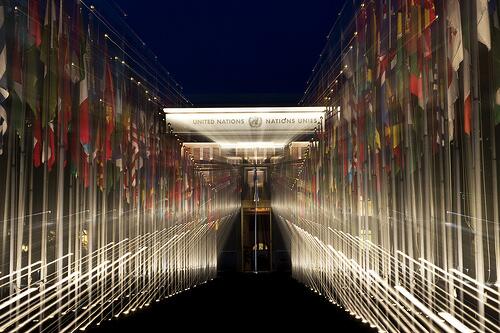
Mar 13, 2017 | Advocacy, Non-legal submissions
The ICJ today delivered a joint NGO oral statement to the UN Human Rights Council on the need in Myanmar for an international Commission of Inquiry and for an independent and self-governing legal profession.
In the statement, the International Commission of Jurists, joined by the International Bar Association’s Human Rights Institute and Lawyers’ Rights Watch Canada, welcomed the report of the Special Rapporteur on the situation for human rights in Myanmar, and her recommendation for a Commission of Inquiry to investigate persecution of Rohingya and other minorities in Rakhine State.
Since 9 October 2016, Myanmar’s security forces have reportedly targeted Rohingya during “clearance operations” which have no basis in law. Attacks against women, men, and children allegedly have involved extrajudicial killings; enforced disappearances; torture and other ill-treatment including rape and other sexual violence; hundreds of arbitrary arrests and detentions; forced displacement; and looting and destruction of homes, food and other property.
To date, authorities in Myanmar appear to have been unwilling or unable to investigate abuses or hold perpetrators accountable. Several national investigation commissions have lacked impartiality and independence. National judicial and law enforcement authorities lack capacity and independence to address this situation. Accordingly, we urge Council to adopt a resolution at this session establishing an international, independent Commission of Inquiry to assess facts, identify causes and perpetrators, and issue recommendations including remedies for victims.
The recent killing of lawyer U Ko Ni, who strongly advocated against religious discrimination and for inter-communal peace, must be subject to a prompt, impartial and effective investigation capable of identifying all those responsible and holding them accountable in a fair trial. It also underscores the urgent need for an independent and self-governing legal profession in Myanmar, enabled to uphold human rights and the rule of law without fear.
The statement may be downloaded in PDF format here: HRC34-OralStatement-Myanmar-2017
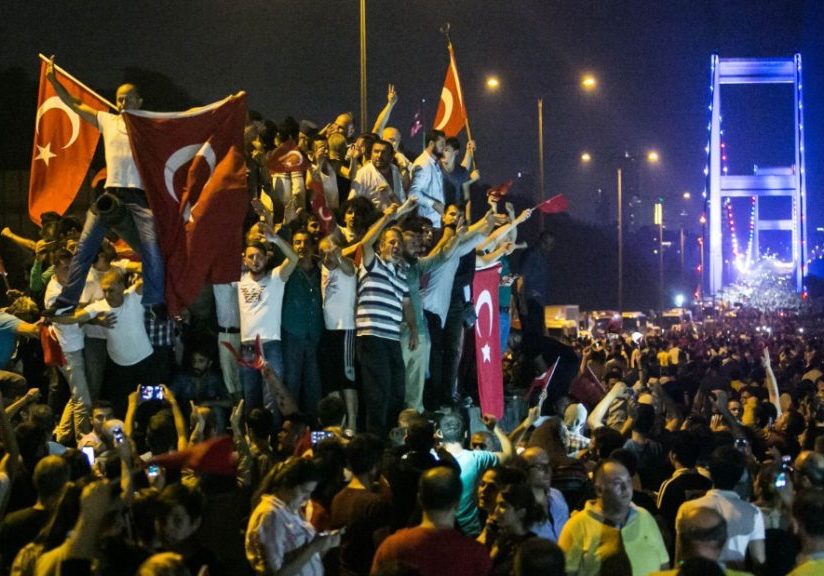
Dec 6, 2016 | Advocacy, News, Non-legal submissions
Nearly five months after the failed coup attempt in Turkey, the country remains locked in an acute rule of law crisis. The government must take urgent steps to restore the rule of law, the ICJ said today.
Mass arrests, many of them arbitrary, and credible allegations of the torture and other ill-treatment of detainees, mean that access to legal advice, to a fair trial and to effective judicial remedies are crucial. However, the unprecedented summary and arbitrary purge of the judiciary following the coup, and arrests of judges, prosecutors and lawyers, have significantly weakened the justice system and its capacity to protect against and effectively remedy violations of human rights. The vulnerability of detainees to violations of their human rights has been compounded by unwarranted restrictions on access to lawyers and extended periods of pre-trial detention.
State of Emergency
The ICJ is concerned that the State of Emergency, which involves derogations from Turkey’s international human rights law obligations, has been renewed for a second period of 90 days, until mid-January. Sweeping emergency decrees continue to erode human rights, including rights of fair trial, the right to liberty, and freedoms of expression and association.
The ICJ recalls that in times of crisis, any measures derogating from human rights must be strictly necessary to meet a current threat to the life of the nation. This necessity must be continually re-assessed so that the derogating measures apply for the shortest time possible. Certain human rights, including the right to life, the prohibition of torture or ill-treatment, and the essential elements of arbitrary deprivation of liberty and to a fair trial and the right to an effective remedy can never be restricted even in a state of emergency. The ICJ is concerned that Turkey’s notifications of derogation purport to derogate in general terms from a number of these rights.
Measures taken under the State of Emergency should be rigorously and urgently reviewed to ascertain whether they are permissible under international law and whether they remain necessary and proportionate to any current threat to the life of the nation. Moreover, it must be ensured that non-derogable rights, including the prohibition on torture and other ill-treatment, and the right to a fair trial, are not limited by emergency measures. The ICJ urges the Turkish authorities to lift the State of Emergency and the derogations from its international human rights law obligations at the earliest opportunity.
Independence of the judiciary
The ICJ reiterates its grave concern at mass dismissals of judges and prosecutors, which have a devastating effect on the independence of the judiciary. More than 3,000 judges and prosecutors – approximately one fifth of the judiciary – have been arbitrarily dismissed under emergency decrees, without procedural safeguards and without the right to reasoned decisions.
Judges and prosecutors have been detained in very large numbers. In total, more than 2,000 have been detained, including two judges of the Constitutional Court, 109 members of the Court of Cassation, 41 Members of the Council of State and five members of the High Council for Judges and Prosecutors (HSYK).
Restructuring of the Court of Cassation and the Council of State, under legislation adopted in July, has required the reappointment of all judges of these courts. New judges have been appointed rapidly, through procedures that lack transparency, and in the context of strong executive influence over the appointment process in the HSYK.
The ICJ is also gravely concerned that the independent association of judges, YARSAV, has been shut down, and its President, Murat Arslan, has been arrested.
These measures have eroded the separation of powers in Turkey and have seriously undermined the independence of the judiciary at every level, compromising the courts’ ability to provide fair trials or an effective remedy for violations of human rights. The impact of this situation on the protection of human rights goes beyond what can be justified under the state of emergency. To meet its international human rights obligations, the Turkish government must as a matter of urgency take steps to restore the independence of the judges and of the governing bodies of the judiciary. Procedural safeguards that protect against arbitrariness in criminal, civil and administrative procedures, including in regard to the dismissal of judges, must be reinstated.
Independence of lawyers and access to legal advice
The ICJ is similarly concerned at measures that undermine the independence of the legal profession and the capacity of lawyers to protect human rights. More than 573 lawyers are reported to have been detained in connection with the failed coup since July, and more than 200 have been arrested, and their assets frozen.
Amongst those reported to be arrested are four Presidents of regional bar associations: Orhan Öngöz, President of the Trabzon Bar; Mehmet Cemal Acar, President of the Siirt Bar; İsmail Taştan, President of the Gumushane – Bayburt Regional Bar and Fevzi Kayacan, President of the Konya Bar. The ICJ considers that many of these detentions and arrests are likely to be arbitrary.
These developments have very serious consequences, not only for the rights of lawyers themselves, but also for the right to a fair trial of their clients and the effectiveness of judicial remedies for violations of human rights. They raise concerns that lawyers are being identified with their clients or their clients’ causes, contrary to the Principle 18 of the UN Basic Principles on the Role of Lawyers. The ICJ recalls that under the UN Basic Principles, governments must ensure that lawyers are able to perform all of their professional functions without intimidation, hindrance, harassment or improper interference.
Furthermore, the ICJ is concerned that hundreds of NGOs have been closed under emergency decrees, including a number of lawyers’ associations. Such closures have serious implications for rights of freedom of association and expression, and for the rule of law.
The ICJ calls on the Turkish government to take urgent steps to guarantee the independence of the legal profession, protect lawyers from arbitrary detention or arrest and provide procedural safeguards to ensure the right to fair trial of lawyers under criminal investigation.
Contact:
Roisin Pillay, ICJ Europe Director, at roisin.pillay(a)icj.org or +32 2 734 84 46
Massimo Frigo, ICJ Europe Legal Adviser, at massimo.frigo(a)icj.org or +41 22 979 38 05
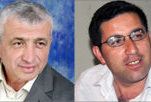
Oct 7, 2016 | News
The ICJ today expressed its serious concerns over the convictions on charges of incitement and extremism of Tajikistan lawyers Buzurgmehr Yorov and Nuriddin Makhkamov, and their sentencing to 23 and 21 years in prison respectively.
“These convictions, which continue a recent pattern of persecution of lawyers in the country, will contribute to the already poor climate for the independence of the legal profession in Tajikistan,” said Róisín Pillay, Director of the ICJ’s Europe and CIS Programme.
“The ICJ calls on the Government of Tajikistan to ensure that the two lawyers are able to appeal their convictions through a fair process before an independent court,” she added. “It should ensure that criminal prosecution is not used by the executive as a means to limit lawyers in the exercise of their professional duty, and that lawyers do not suffer any reprisals due to their identification with their clients’ causes.”
On 6 October, the two lawyers were sentenced by the Dushanbe City Court on a number of charges, which included incitement to feud, calls for a violent change of the constitutional order and extremist activity.
They were also banned from working as lawyers for five years after serving their sentences.
Buzurgmehr Yorov, head of the Sipar Collegium of Lawyers, was arrested on 28 September 2015. Nuriddin Makhkamov, a lawyer of the same Collegium, was taken into police custody on 22 October 2015.
Both lawyers represented members of the Islamic Renaissance Party of Tajikistan (IRPT) at the time of their arrests.
At the trial, which was closed to the public, with only relatives allowed to attend, the lawyers denied their guilt and argued that the case was politically motivated and related to their defence of IPRT members.
Buzurgmehr Yorov was reported to have testified during the trial that he took up the case not because of a sympathy for the IRPT but because of his professional duty as a lawyer.
These convictions raise significant concerns under international human rights law and international standards on the role of lawyers.
It is a fundamental principle, necessary for the right to fair trial and recognized in international standards on the role of lawyers, that lawyers should never be identified with their clients or their clients’ causes as a result of discharging their professional functions.
The UN Basic Principles on the Role of Lawyers further require governments to ensure that lawyers “are able to preform all of their professional functions without intimidation, hindrance, harassment or improper interference” (Principle 16).
The case also gives rise to concerns regarding respect for the right to a fair trial protected by Article 14 of the International Covenant of Civil and Political Rights, to which Tajikistan is a party.
“These attacks continue a wave of arrests and charges against lawyers in Tajikistan,” said Pillay.
“They create a chilling effect on the proper exercise of professional duties by other members of the legal profession, endangering the right to a fair trial and undermining the justice system,” she added. “The ICJ therefore calls on the Government to take urgent measures to prevent further such attacks on lawyers.”
Contact:
Róisín Pillay, Director, ICJ Europe and CIS Programme, t: +32 2 734 84 46; e: roisin.pillay(a)icj.org
Temur Shakirov, Legal Adviser, ICJ Europe and CIS Programme, t: +41 22 979 38 32; e: temur.shakirov(a)icj.org
Additional Information:
Buzurgmehr Yorov was arrested on 28 September 2015 and initially changed with fraud. Other charges were added later during his pre-trial detention. He was sentenced to 23 years imprisonment on charges of incitement to national, racial, local or religious feud (Article 189 of the Criminal Code (CC)), fraud (Article 247 of the CC), public calls to a violent change of the constitutional order (Article 307 of the CC), public calls to conduct extremist activity (Article 3071 of the CC), forgery, production or sale of forged documents, state awards, stamps, forms (Article 340 of the CC).
Nuriddin Makhkamov was arrested on 22 October 2015. He was initially charged with fraud. Further charges were added during his pre-trial detention. He was convicted on charges including incitement to national, racial, local or religious feud (Article 189 of the CC), fraud (Article 247 of the CC), public calls to a violent change of the constitutional order (Article 307 of the CC), public calls to conduct extremist activity (Article 3071 of the CC).
The IRPT was found to be a terrorist organization by the Supreme Court of Tajikistan in 2015 and banned. Its leaders received long prison sentences in closed trials on charges of terrorism, extremism and attempts to overthrow the constitutional order.
A number of other prominent lawyers have been arrested and convicted in Tajikistan since 2014. Some have been released, others remain in detention, including Shukhrat Kudratov, the lawyer of the former Minister of Energy Zaid Saidov, convicted on fraud and bribery charges in 2015.
tajikistan-yorov-makhkamov-news-web-story-2016-rus (full text in Russian, PDF)
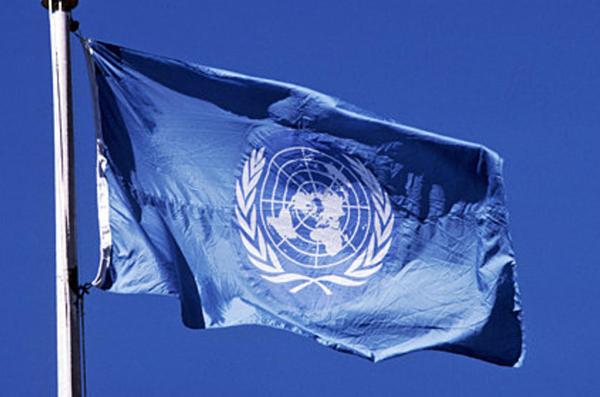
Jun 22, 2016 | Advocacy, Non-legal submissions
The ICJ today made an oral statement at the United Nations, on threats to the independence of lawyers in Azerbaijan.
In the statement to the Human Rights Council, the ICJ emphasised that lawyers in Azerbaijan face suspension or disbarment for statements clearly constituting protected freedom of expression. In some cases, they are subject to arrest, detention, unfair trial, and arbitrary imprisonment.
The lack of independence of the Bar Association is a serious concern. This body is increasingly initiating apparently groundless disciplinary proceedings, including leading to disbarment, against lawyers who defend the interests of clients in high profile or politically sensitive cases. Disciplinary penalties in such cases are routinely upheld by the judiciary, which does not appear to be fully independent.
This was highlighted in preliminary findings of the Working Group on Arbitrary Detention following its recent visit (Working Group on Arbitrary Detention Statement upon the conclusion of its visit to Azerbaijan (16-25 May 2016)). Representatives of the ICJ are currently visiting Azerbaijan to further assess the situation.
The cases of Khalid Bagirov, Alaif Ghasanov and Intigam Aliyev illustrate these concerns. While welcoming the release of Mr Aliyev, we remain concerned at the maintenance of his underlying conviction despite credible reports that the charges against him were politically motivated.
Lawyer Muzaffar Bakhishov is currently subject to disbarment proceedings for having criticized the lack of independence of the judicial system.
These disbarments have a chilling effect on the work of other lawyers. They undermine access to effective and independent legal assistance to protect human rights.
The ICJ urged the Council to closely monitor this worrying trend for the rule of law.
The statement may be downloaded in PDF format here: HRC32-OralStatement-Azerbaijan-2016-final-ENG









